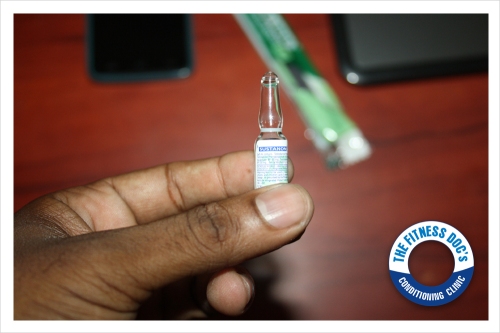
Posted by Dr Deepak Hiwale on Tue, Apr 19, 2016
No of Views(5994)

The worldwide prevalence of obesity has reached epic proportions. So much so, that calling obesity a pandemic wouldn’t amount to exaggeration! In addition to putting individual lives on the line, obesity has the ability to severely increase health care costs, negatively impacting on most economies of the world 1;2.
So, what is it that causes obesity – you might want to ask!
What causes obesity?
Well. traditionally, we have been told that ‘excess intake of calories coupled with decreased expenditure’ is the immediate cause of obesity. Excess calories are treated as reserve food material (read: fats) and deposited as triglycerides (TGs) inside adipose tissue (fat stores). However, having said that,it does not seem to be as simple as that.
Recently, it is increasingly being suggested (and, I am one of those who believes in this) that obesity may be a metabolic disorder where your nutrient metabolism goes for a toss. Also, rather than how many calories you consume, what kind of food you eat (and where the calories are coming from) will define if you stay lean or pack on weight; ingestion of nutrient-dense food is likely to make you leaner and healthier than foods that are only rich in calorie and poor in nutrients.
Also, a number of (as yet poorly understood) factors play a causative role: hormones, metabolic enzymes, metabolic rate, nutrient partitioning and calorie partitioning abilities of the individual. It must be emphasized here that the kind of food you eat will have a massive influence all of the aforementioned factors.
Anthropometric tell-tale signs of obesity are:
Adverse-effects of being Obese?
In addition to the much publicized ill-effects of obesity (given below), not many people are aware that obesity causes testosterone deficiency (TD) as well. Testosterone has a prominent effect on metabolism; deficiency can add to the problems. In addition, low levels of T can have a detrimental effect on a person’s psyche, making it hard to stick to a prescribed regimen of healthy food and exercise to counter obesity. Thus a ‘vicious cycle’ connection exists between obesity and low testosterone levels.
Well-known adverse-effects of obesity are:
Testosterone deficiency and Obesity in Men
Testosterone (as the major male sexual hormone) is responsible for the male sexual and reproductive functions. However, not many people are aware that it plays a significant role in calorie utilization and metabolism as well. The exact mechanisms by which testosterone levels are affected in / contribute to obesity remain a mystery 3.
However, here are some interesting facts connecting testosterone to obesity are: testosterone:
Thus, it can safely be said that testosterone is responsible for maintaining and increasing muscle while burning fat; low levels are responsible for fat deposition resulting in obesity, diabetes, cardiovascular disease, metabolic syndrome and increased mortality 3-5;7-10.
How can obesity be treated?
A number of strategies have been proposed by researchers, physicians and fitness professional to fight obesity. Some of these are:
A novel, effective method proposed for treating obesity is combining exercise and healthy diet with testosterone replacement therapy (TRT) – especially if accompanying signs and symptoms suggestive of hypogonadism are present. Additionally, as opposed to other modes of treatment, testosterone has the potential to elevate mood and energy and reduce fatigue 11.
Future research
Although TRT sounds like an exciting treatment option for tackling obesity, the plasma levels of testosterone at which therapy should be initiated remain undefined. Currently, it is recommended only in individuals diagnosed with testosterone deficiency (hypogonadism / erectile dysfunction).
A sad fact is that most doctors treating obese patients with diabetes or cardiovascular disease are not aware of the connection of testosterone with obesity and the potential benefits of testosterone therapy. Furthermore, the misconception that testosterone increases cardiovascular risk 12 and chances of pancreatic cancer prevents clinicians from prescribing testosterone 13.
There is a definite and realistic need to further explore this option for treating obesity in men. Also, an effort should be initiated to educate both doctors as well as members of the general population (who are struggling with obesity and its ill-effects) regarding the benefits of testosterone replacement therapy.
References
(1) Kypreos KE. Mechanisms of obesity and related pathologies. FEBS J 2009; 276(20):5719.
(2) Freedman DH. How to fix the obesity crisis. Sci Am 2011; 304(2):40-47.
(3) Traish AM, Feeley RJ, Guay A. Mechanisms of obesity and related pathologies: androgen deficiency and endothelial dysfunction may be the link between obesity and erectile dysfunction. FEBS J 2009; 276(20):5755-5767.
(4) Singh R, Artaza JN, Taylor WE, Braga M, Yuan X, Gonzalez-Cadavid NF et al. Testosterone inhibits adipogenic differentiation in 3T3-L1 cells: nuclear translocation of androgen receptor complex with beta-catenin and T-cell factor 4 may bypass canonical Wnt signaling to down-regulate adipogenic transcription factors. Endocrinology 2006; 147(1):141-154.
(5) Emmelot-Vonk MH, Verhaar HJ, Nakhai Pour HR, Aleman A, Lock TM, Bosch JL et al. Effect of testosterone supplementation on functional mobility, cognition, and other parameters in older men: a randomized controlled trial. JAMA 2008; 299(1):39-52.
(6) Traish AM, Abdou R, Kypreos KE. Androgen deficiency and atherosclerosis: The lipid link. Vascul Pharmacol 2009; 51(5-6):303-313.
(7) Dhindsa S, Miller MG, McWhirter CL, Mager DE, Ghanim H, Chaudhuri A et al. Testosterone concentrations in diabetic and nondiabetic obese men. Diabetes Care 2010; 33(6):1186-1192.
(8) Aversa A. Drugs targeted to improve endothelial function: clinical correlates between sexual and internal medicine. Curr Pharm Des 2008; 14(35):3698-3699.
(9) Cattabiani C, Basaria S, Ceda GP, Luci M, Vignali A, Lauretani F et al. Relationship between testosterone deficiency and cardiovascular risk and mortality in adult men. J Endocrinol Invest 2012; 35(1):104-120.
(10) Araujo AB, Dixon JM, Suarez EA, Murad MH, Guey LT, Wittert GA. Clinical review: Endogenous testosterone and mortality in men: a systematic review and meta-analysis. J Clin Endocrinol Metab 2011; 96(10):3007-3019.
(11) Saad F, Aversa A, Isidori AM, Gooren LJ. Testosterone as potential effective therapy in treatment of obesity in men with testosterone deficiency: a review. Curr Diabetes Rev 2012; 8(2):131-143.
(12) Traish AM, Kypreos KE. Testosterone and cardiovascular disease: an old idea with modern clinical implications. Atherosclerosis 2011; 214(2):244-248.
(13) Morgentaler A. Testosterone replacement therapy and prostate cancer. Urol Clin North Am 2007; 34(4):555-63, vii.


Disclaimer - All information and content on this site are for information and educational purposes only. The information should not be used for either diagnosis or treatment or both for any health related problem or disease. Always seek the advice of a qualified physician for medical diagnosis and treatment.
Advertise with us | Medindia Copyright | Privacy Policy | Terms of Use © All Rights Reserved 1997 - 2025
Comments should be on the topic and should not be abusive. The editorial team reserves the right to review and moderate the comments posted on the site.